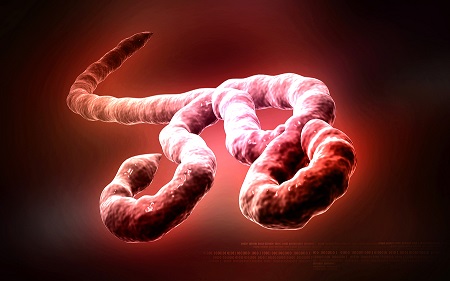The latest plea came last week in the form of a letter signed by over 100 health professors that was presented to the office of the Prime Minister.
It urged the Prime Minister "to bolster the Australian response to the international efforts to control the outbreak of Ebola virus affecting West Africa and other countries".
"The best means of protecting Australia and other high-income countries is for robust control efforts at the source of the outbreak," said CEO of the Public Health Association of Australia (PHAA), Adjunct Professor Michael Moore.
"It is in our national interest to ensure the epidemic is contained.
"It is estimated that at least 70 per cent of patients need to be in treatment centres to control the epidemic.
"This requires skilled personnel who can build hospitals, deliver care, provide security and manage the required logistics."
The letter to Canberra stated: "The outbreak has seen a strong political and financial commitment from countries, such as the United States of America, China, Cuba and the United Kingdom, including deployment of military troops.
"The World Health Organization (WHO) and United Nations have called on countries with capacity to increase their response to the outbreak."
Immediate action required by government
The professors called on the Prime Minister to:
- Provide appropriate troops and equipment;
- Deploy our Australian Medical Assistance Team;
- Assemble and support appropriately qualified health and other civilians who are ready and waiting to help; and
- Make a significant financial contribution.
The best option?
However Dr Adam Kamradt-Scott from the University of Sydney's Centre for International Security Studies says it would be gravely disadvantageous for the government to initiate further involvement, particularly with respect to the Defence Force.
According to Dr Kamradt-Scott in a recent opinion piece (see Fighting ebola: Why Australia can't send troops) it is for the simple fact that Australian Defence Force troops are ill equipped to combat infectious diseases. Furthermore, the troops have insufficient military assets to responds to such a crisis.
In the article he writes: "According to the Australian Institute of Health and Welfare … in 2013 there were 256 doctors (out of 78,514 nationally) and 694 nursing staff (out of 266,509 nationally) employed in the Defence Forces in clinical positions. This compares to 318 doctors and 453 nurses in 2011.
"Some of this fluctuation can be attributed to previous government 'efficiency savings' in military spending, but equally the ADF has found it difficult to retain trained healthcare professionals due to the amount of administration often associated with defence-related medical roles.
"As a nation we have systematically failed to invest in military healthcare, and it would be dangerous – not to mention grossly unfair – to now deploy our military forces and expect them to deal with this outbreak."


-160x160-state_article-rel-cat.png)


















